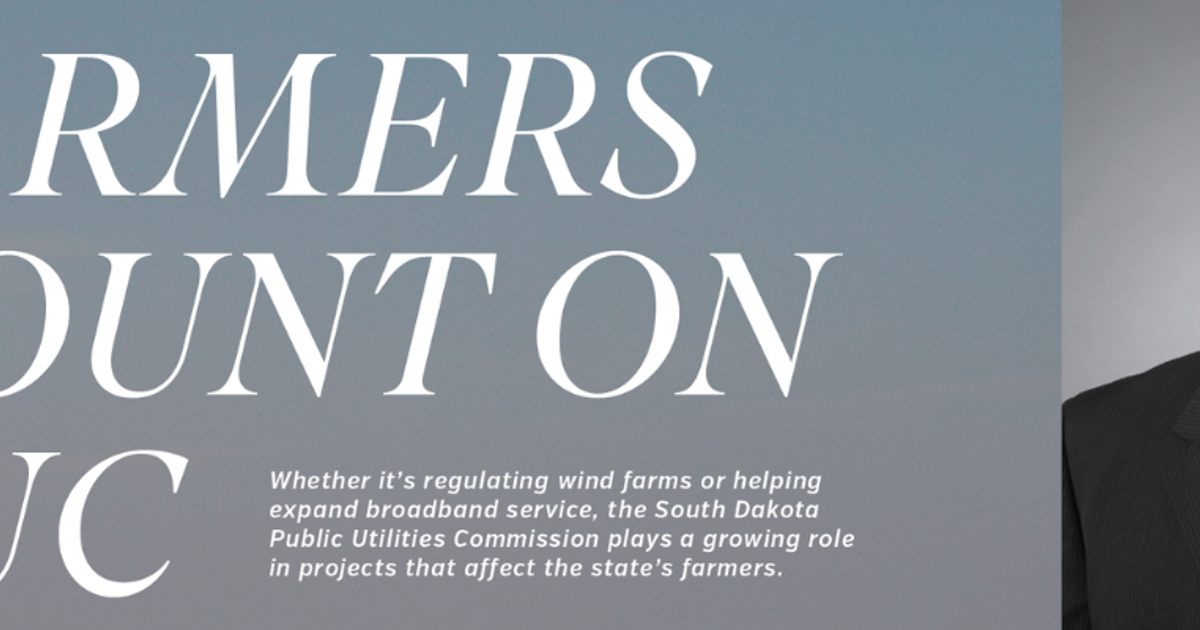FARMERS COUNT ON PUC

Commissioner Chris Nelson says one of the most significant achievements in regard to rural South Dakota is the expansion of broadband internet.
“We’ve seen tremendous success in that, particularly over the last dozen years. We now have gotten broadband to 95 percent of South Dakotans,” he said. “That allows farmers and ranchers to do business at their homes. As precision ag becomes more predominant, that generates a lot of data. In order for that data to go where it needs to go for processing, for storing, for evaluating, it takes a strong broadband network.”
Nelson, who has been a commissioner for 14 years, says the three-member PUC is perhaps most known for its siting authority. Before certain large projects can be built, they need permits from the PUC. That includes any electric-generation source of 100 megawatts or larger. That could include a wind farm, a solar farm, a natural gas generator, an electric transmission line that’s larger than 115 kilovolts, an oil pipeline or a carbon dioxide pipeline.
After the PUC receives an application, it can take one of three actions: grant the permit, deny it, or grant it after adding conditions. Nelson said any particular wind farm permit might have 50 or 60 conditions attached, with a focus on reclamation.
To protect farmers, every wind farm that the PUC has permitted during the past seven years has been required to establish an escrow account and pay $5,000 per turbine per year into the account. The escrow is owned by the company but controlled by the PUC. That is to ensure when a wind farm is decommissioned that the company properly removes all equipment and restores the land.
“If for some reason they don’t, we have a pile of money to make sure it gets done and the landowners are taken care of,” Nelson said. “Wind farm owners hate it; they fought it at every turn. But we won’t leave a landowner on the hook.”
Another significant PUC role that directly affects farmers is overseeing grain elevators and warehouses, particularly for their financial viability. The goal is to make sure farmers get paid for the grain they sell. The PUC has a staff that does periodic inspections of facilities and their finances to ensure they’re financially viable.
“If they’re having difficulties, the sooner we can find them and the sooner we can get them back on their feet, the better off we are,” said Nelson, who has a background in farming and an animal science degree.
There were two high-profile cases of grain companies failing in recent years. One was because of criminal actions. Unfortunately, farmers lost money in those cases. However, Nelson said there are many more examples of the PUC finding problems early and helping companies either become financially viable again or working with them to liquidate or sell to another company. Nelson’s advice to producers is to know who you’re doing business with. If there are signs that something isn’t right, notify the PUC.
Commissioners’ roles have grown more diverse. For instance, the PUC’s involvement with intrastate natural gas pipelines has expanded since dairy farmers added methane digesters that capture methane to be transported and injected into pipelines.
“That’s a new part we do,” Nelson said. “All focused on safety.”
